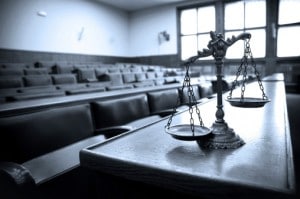Part of a criminal defense attorney’s job is to ensure his clients get the fairest possible trial.

What is Juror Bias?
Juror bias is basically anything that interferes with an individual’s ability to impartially consider the facts presented in the course of a trial. There are two main types of bias.
Actual Bias
Actual bias is a state of mind that prevents the juror from considering the case impartially. Some common examples include:
- A prejudice against the defendant that preconceives either guilt or innocence
- A prejudice against the reliability of a certain type of witness
- A bias for or against the death penalty
- A gut reaction to a particular type of crime that prevents impartial consideration of the evidence
A juror can also be considered to have actual bias if they express an opinion about the verdict before all the evidence has been presented.
Implied Bias
Implied bias is a relationship or circumstance that is likely to cause bias, though that bias is not specifically stated or expressed by the juror. Some examples include:
- Being a relative, colleague, or associate of anyone involved in the case
- Having served as a juror or witness in any prior civil or criminal case involving the same parties
What Can A Criminal Defense Attorney Do?
A criminal defense attorney does have some important tools at his disposal to help in selecting the most impartial jury possible and in ensuring that jury remains impartial throughout the trial.
Weeding Out Biased Jurors
First of all, the criminal defense attorney must dedicate great care to the juror selection process. During the “voir dire” process, the judge and the attorneys may ask prospective jurors questions in order to ascertain whether or not they may have any actual or implied bias. Jurors are required to answer honestly and if any hint of prejudice is revealed, they will be dismissed from service. The criminal defense attorney may also make peremptory challenges to juror selection to remove jurors.
Motion for New Trial
If a juror lies about their bias during voir dire, if they are later revealed to have formed an opinion about the verdict before the presentation of evidence is complete, or if they have engaged in any other form of juror misconduct such as getting outside information about the trial, the criminal defense attorney can and should raise a motion for a new trial.




